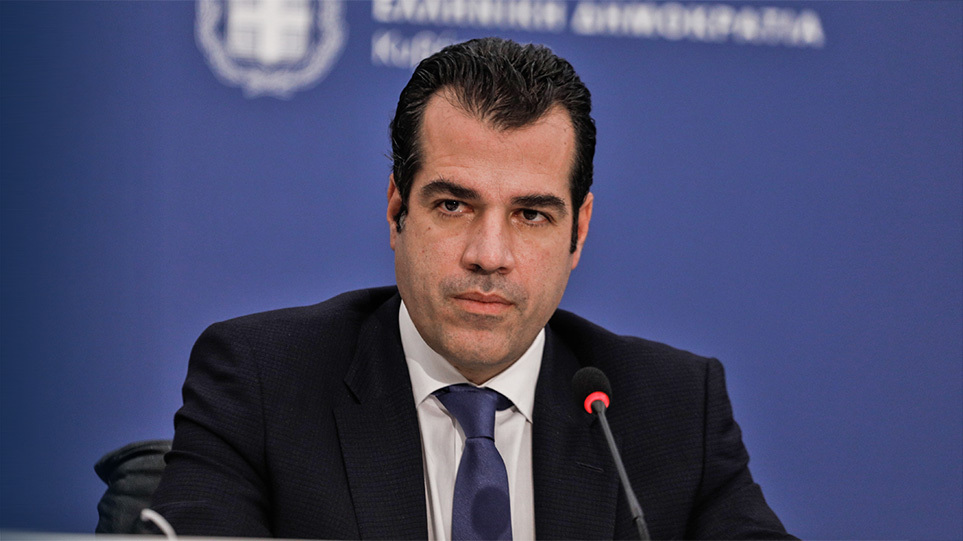Three important reforms and in addition the implementation of the – delayed – repayment of retroactive pensions to retirees with more than 30 years of insurance are on the agenda of the Ministry of Labor for the coming autumn.
The government’s “reform fronts” in the field of labor and social security concern, first, the completion of the passage of the insurance bill by turning it into a capitalization of the auxiliary insurance system.
Secondly, the “opening” of a new front of changes in the field of vocational training with the submission of a bill for the provision of training and the Greek Manpower Employment Organization (OAED).
Thirdly, the implementation – in practice – of the participation of private liquidators in the process of accelerating the award of outstanding pensions, after the completion of the “training and certification” of lawyers and accountants who have participated in this effort.
And of course the completion of the “marathon” of calculation and payment of retroactive benefits derived from the Vroutsis law of 2019 and provides for a higher replacement rate for insurance over 30 years.
A new landscape in social security is formed from January 1, 2022, when the operation of the new Auxiliary Capital Insurance Fund (TEKA) is expected to begin.
The relevant bill has been approved by the committees of the Parliament and is expected to be voted by its Plenary Session after the resumption of the work of Parliament, on the 23rd of August.
With the new system, individual “piggy banks” are created that will bear the name of each insured person. The future pensions of the new employees will be paid from these piggy banks. In other words, instead of the young people’s contributions being used to pay the supplementary pension of the current pensioners, they will be saved and invested, creating a reserve, from which their future pensions will be paid.
The contributions paid by each new employee will go to his own pension, which will be calculated on the basis of the accumulated amount of contributions and returns.
According to the government, this reform provides a “double guarantee”. In other words, the government guarantees to the current pensioners and those insured that nothing will change, their pensions will be calculated according to the existing rules, without undergoing any change.
As for those newly insured, who will retire under the new system, the state provides a guarantee that they will receive a pension that corresponds at least to the “real value” of the contributions they have paid.
At the same time, the leadership of the Ministry of Labor is preparing the next vocational training reform, which is expected to be announced in the autumn.
This is the fourth reform initiative launched by the government at the Ministry of Labor. They were preceded by: the issue of outstanding pensions and the reform of social security EFKA. The labor bill and the creation of the new auxiliary capital fund, which has not yet been completed.
According to the – so far – official statements, the bill will include provisions for the modernization of OAED, but also for the training and retraining system of our country. The basic principles of the new system will be the quality, evaluation and certification of both training providers and trainees.
The aim is to utilize European resources (NSRF and Recovery Fund) in order to improve the so-called “skills matching”, ie the matching of the skills of the workforce with the needs of the labor market.
In this sector, Greece is performing poorly, which results in many companies not finding suitable employees, although unemployment is high.
The issuance of 30,000 pensions per month is the next goal of the Ministry of Labor and the social security fund EFKA, in order to begin to show the solution to the huge problem of outstanding pensions that have accumulated while waiting for the insurance fund.
“There is a small improvement,” said Minister K. Hatzidakis, as the first significant reduction in the number of tens of thousands of outstanding pensions was recorded, with the rate of pensions being reached reaching 20,000 per month.
The Minister estimates that in the autumn, with the involvement of the private liquidators (certified accountants and lawyers), as well as the promotion of the work of the digitization of the EFKA infrastructure, the first de-escalation of the project will begin to appear. In the next quarter it is estimated that the award rate will have reached 30,000 per month.
The main pensions
Between September 2020 and May 2021, the outstanding main pensions decreased by 48,078, as the awards increased due to the efforts of e-EFKA employees, who under adverse conditions are trying to respond to the big problem that has literally brought the Fund to its knees. By May 2021, pending main pension applications had fallen from 179,648 last September to 131,570.
Three waves of payments with increases in the Vroutsis law
In more than three waves of payments, the payment of retroactive payments to 150,000 older retirees is expected to be completed in the fall, ie to those who submitted a pension application before May 2016. e-EFKA has announced that the exact dates will be updated, as well as the recalculation of the main pensions has not been completed.
Payments will start at the end of September and will include one payment for the increases, another for the retrospectives and another for the money from the “delayed” recalculation of the difficult cases.
The category of olderretirees includes: 50,000 retirees with a small positive personal difference. The new replacement rates will equalize the personal difference and earn an average increase of 30 euros. Also 100,000 older retirees who received an increase from 1/1/2019 (negative personal difference) with the Katrougalos law. These retirees will have to wait for a new increase of an average of 40-50 euros.
A necessary condition for them to receive increases is that the increase of the Vroutsis law is greater than the amount of the personal difference, so that the remaining amount is credited to their account.
Also, a “lot” of retroactive payments that had to be paid last month and concern new retirees (before May 2019) are still pending. These are 29,032 cases whose recalculation is expected to be completed in the coming weeks and the payment of the amounts to the beneficiaries will be made with injectable payments.
The special cases concern employed pensioners, pensions due to death where the deceased passed away after October 2019, as well as cases of beneficiaries who also passed away after October 2019 and the amounts will be paid to their heirs. The controls for these cases are more complicated and require more time.
Finally, next month the decision of the Council of State is expected to be published, which leads to a new round of retroactive payments of 2.5 billion euros. It concerns the return of the gifts of the eleven months June 2015 – May 2016, as well as the corresponding cuts in the supplementary pensions.







































